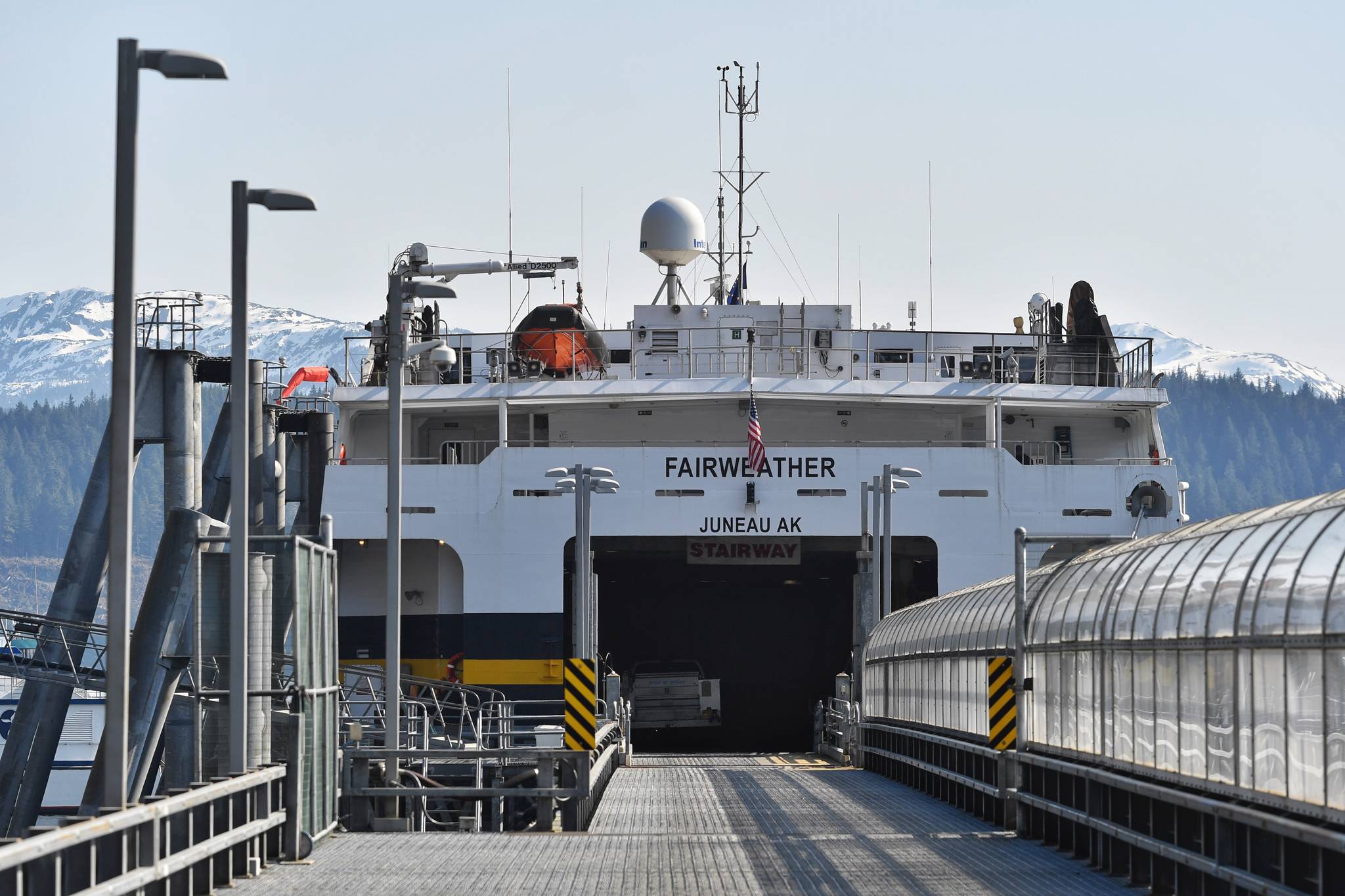“I want to let you know that Alaska is open for business,” Mike Dunleavy said soon after being elected governor. “I’ll say that again — Alaska is open for business.” And he has said it again. And again. But for communities along the state ferry routes, the going-out-of-business sale proposed for the Alaska Marine Highway System is a warning for outsiders to stay away.
During the campaign, Dunleavy promised to make sure AHMS remained the “backbone of transportation in Southeast.” He had “no plan to hack, cut or destroy” it. As governor, though, he’s wants to cut the system budget by almost 70 percent. And spend $37 million “for divesting the Alaska Marine Highway System ferries and terminals.”
His March 19 Request for Proposals to “reshape” the system further destabilized local communities that have depended on the reliable ferry service since statehood. The first option he’s asked consultants to consider is “selling or give all vessels and terminals to a private entity to run whatever service it thinks is appropriate.” None of the other nine options would fulfill his campaign promise either.
[Opinion: Facts, not tales, tell story of Alaska’s ferry system]
To understand how Dunleavy’s budget will affect communities in Southeast and Prince Willman Sound, Kodiak and beyond, consider the 2016 McDowell Group study titled “Economic Impacts of the Alaska Marine Highway System.”
In 2014, “AMHS employment and spending” contributed to the creation of 683 local and private sector jobs worth $38.7 million in wages. More than 500 Alaska businesses earned a piece of the $46 million AHMS operations pie. Major vessel construction and maintenance, mostly done at the Ketchikan, added $38 million.
AMHS transported 3,862 containers carrying “seafood, groceries, and other products critical to Alaska businesses and residents.” It was used by more than 100,000 nonresidents who tended to spend twice as much as money while traveling the state compared to the average summer tourist.
On top of that, there’s about 900 AMHS employees living in Alaska who earn about $60 million in annual wages. Combined with the direct figures above, the state gets more than two dollars’ worth of economic activity for every AMHS dollar it spends.
[Frustrations run high as many testify in support of ferry system]
If Dunleavy has his way, the propellers of that economic engine will be reversed.
For him, the problem begins and ends with the fact that AHMS doesn’t generate enough revenue to balance its books. As McDowell and Elliot Bay Design Group wrote in their 2017 study, it “will always be dependent on public support to provide safe and reliable transportation,”
But the three qualifiers to that conclusion also apply to any private business interested in taking over the system. Expecting to turn a profit in “the small markets served, long distances between ports, and often extreme weather operating environment” is unrealistic. They’d have to eliminate what have historically been the heaviest subsidized routes and ports of call. And reduce service and/or drastically raise fares for the rest.
Local businesses will most definitely suffer without frequent, dependable ferry service. And community leaders will be left with the impossible task of convincing anyone that their piece of Alaska is open for business.
Dunleavy though, seems intent on ignoring McDowell’s findings in the same manner that Ed King, an economist in his Office of Management and Budget, dismissed statewide job loss that the Institute of Social and Economic Research predicted if Dunleavy’s budget cuts are enacted.
[Economy to take a hit, no matter the budget outcome]
“That’s not how a real economy works,” King proclaimed to the Senate Finance Committee last month. Responsible people who lose their job will simply “find another job or find a way to spend money out of savings or they adjust in some other way whether it’s early retirement or opening a business.”
Maybe that’s true in Seattle, San Francisco or other big cities with diverse economies tracking alongside one that’s expanding nationally. But it won’t happen the small, remote communities from Ketchikan to Skagway and beyond. Especially when the state remains mired in a recession.
If Dunleavy wants to prove his ferry critics wrong, then he should read every system study done during the past two decades. If he still thinks he’s right, he should hold town halls in the affected communities. And stand tall before those audiences without Americans for Prosperity establishing the meeting rules that gave him cover during last month’s fiscal policy tour.
• Rich Moniak is a Juneau resident and retired civil engineer with more than 25 years of experience working in the public sector. He contributes a weekly “My Turn” to the Juneau Empire. My Turns and Letters to the Editor represent the view of the author, not the view of the Juneau Empire.

